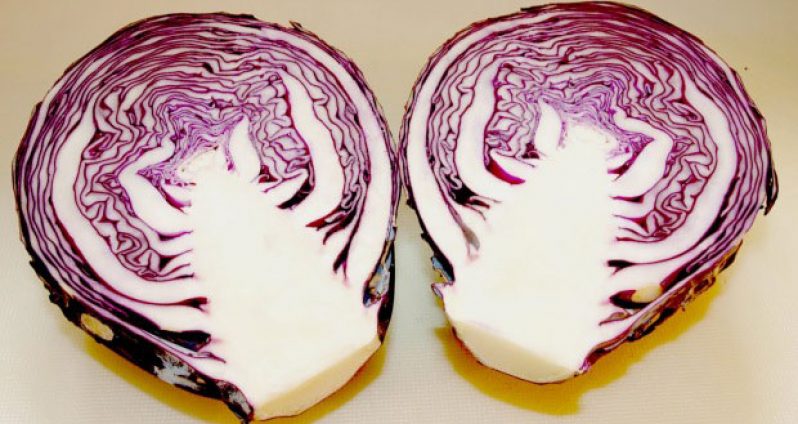Foods that make you smarter; surprising health benefits of eggs
Eating well plays a big part in enhancing physical performance, but did you know certain food choices can also enhance brain function? If your memory needs a boost, or your concentration is letting you down, maybe it’s time to reassess what you’re eating?
Complex carbohydrates
 These types of carbohydrates provide a slow release of glucose to the brain – the only sugar the brain can absorb. Glucose is required to fuel the brain cells that are responsible for concentration, memory and learning. Good sources of complex carbohydrates include wholegrain breads, oats, brown rice, legumes, fruits and vegetables.
These types of carbohydrates provide a slow release of glucose to the brain – the only sugar the brain can absorb. Glucose is required to fuel the brain cells that are responsible for concentration, memory and learning. Good sources of complex carbohydrates include wholegrain breads, oats, brown rice, legumes, fruits and vegetables.
Antioxidants
Researchers believe that eating foods high in antioxidants may help delay brain aging since they help combat free radical damage. Free radicals are irregular molecular atoms, that occur naturally in the body, or externally from environmental factors such as pollution, cigarette smoke and herbicides, that attack the cells, causing the breakdown of tissues and possibly play a role in causing several diseases from cancer to dementia. Researchers believe that antioxidants found in brightly coloured fruits and vegetables like blueberries, carrots and avocado may help keep our brain in firing form by protecting it from oxidative damage. Other foods high in antioxidants include red kidney beans, Granny Smith apples, pecans and plums.
Egg yolk
Eggs are not only a great source of protein as the yolk also contains the memory-promoting nutrient choline. Choline is a key component of two molecules in the brain: phosphatidylcholine and sphingomyelin. These two molecules account for a high percentage of the brain’s total mass, making choline vitally important for brain function. For maximum health benefits include up to two eggs in your diet, three to four times a week.
Coffee
Your morning coffee does more than just wake you up – it also boosts your brain power. Research shows coffee improves memory and speeds up reaction times by acting on the brain’s prefrontal cortex, the area responsible for short-term memory. A lifetime of coffee consumption has even been associated with a lower risk of Alzheimer’s disease, a brain disease affecting memory, thought and language. So enjoy your morning cup of joe, knowing it’s doing your brain good.
 Sage
Sage
Sage (Salvia) is documented in herbal encyclopedias as an agent that enhances memory. Recent studies indicate that taking sage oil can enhance improve memory performance. An easy and inexpensive way to consume sage is to make your own tea. Simply pour one cup of boiled water over two teaspoons of fresh or one teaspoon of dried sage leaves. Cover and steep for 10 minutes and strain. Fresh sage leaves should be wrapped in a moist paper towel or bag, placed in a loose plastic bag, and stored in your refrigerator.
Water
Your brain is made up of approximately 75 per cent water, therefore staying hydrated is absolutely vital for optimum brain performance. Health professionals believe the number one cause of memory loss, at any age, is dehydration and the simple act of drinking a large glass of water can dramatically improve brain function. Tip: start the day hydrated and get into the habit of drinking a glass of water first thing upon waking then again as soon as you get to work.
Oily fish
Fish contains high levels of the fatty acids EPA (eicosapentaenoic acid) and DHA (docosahexaenoic acid). EPA acts like an anti-inflammatory in the body, and also helps to prevent blood clotting, which can trigger aheart attack or stroke. DHA is concentrated in large amounts in the brain and is now considered a vital nutrient to enhance learning ability and mental development. Fish that contain the highest levels of fatty acids include tuna, mackerel, salmon, trout and sardines.
Kelp
Kelp is a sea vegetable (seaweed) high in magnesium, calcium and iodine. Iodine is necessary for normal growth and development of the brain and body. Because the body does not make iodine, it must be obtained from the diet. Kelp is the most abundant, iodine-rich sea vegetable. Other rich sources of iodine include seafood, dairy products, plants grown in iodine-rich soil and iodised table salt. Severe iodine deficiency has long been known to cause mental impairment, stunted growth and learning problems in children.
Cacao
Cacao is chocolate in its purest form, free from sugar, dairy and other processed ingredients. It’s considered a super-food since it contains huge amounts of antioxidants, as well as a compound called epicatechin. Scientists are now discovering the combination of exercise and a diet high in epicatechin promotes functional changes in a part of the brain that supports learning and memory. What does this mean for the rest of us? We can keep our mind sharp with a cup of hot cacao (hold the marshmallows) as a guilt-free treat, or add a scoop of cacao powder to your breakfast smoothie.
Walnuts
Interestingly a shelled walnut looks remarkably like a miniature brain; it’s like nature’s way of reminding us to eat these little wonders for brain nourishment. Walnuts are packed with essential fatty acids, critical for brain and nervous system performance. The brain is a very fatty organ and requires adequate amounts of these fatty acids for optimum function and cognition. Add walnuts to your morning porridge or enjoy a handful as a snack.
Surprising Health Benefits of Eggs
The popular morning snacks, eggs, are loaded with an array of nutritional benefits that make it a first choice of everybody to have in breakfast. From scrambled to poached to boiled or simply to an omelette, eggs are consumed and found irresistible all over the globe. The article below explains about some of the amazing health benefits that we can enjoy by consuming eggs.
Essential for Brain Health
Eggs are a rich source of choline, which acts as neurotransmitters to improve the cognitive health and this way, eggs are helpful in maintaining the brain health. Moreover, even the egg yolk is rich in folate, which maintains the nerve cells, thereby inducing brain to function properly. The vitamin B12, found in eggs, shields the brain by producing myelin sheath, which protect it from neural tube defects.
Makes the Bones Strong
Eggs are an excellent source of vitamin D, which is essential for the assimilation of calcium in the body. Furthermore, the presence of calcium and phosphorous put off osteoporosis and are beneficial in augmenting the bone solidity.
Maintains Body Weight
Protein-rich eggs must be taken by those, who want to gain muscle weight. It has been found that consumption of eggs helps in avoiding overeating, thus maintaining a healthy body weight.
Improves Nails and Hair Health
Eggs have been found to include sulphur-rich amino acids, which not only improve the quality of nails, but also make your hair beautiful and strong. Other minerals, like selenium, iron, and zinc are equal contributors in maintaining hair and nail health.
Good for Eyesight
Lutein and zeaxanthin are two carotenoids, which essentially works towards keeping the eye vision healthy. These compounds safeguards eyes from cataract, macular degeneration and ultra-violet rays.
Reduces the Risk of Breast Cancer
According to several studies, consumption of six eggs a week reduces the danger of breast cancer to a great extent. Almost by 44%!
And it’s also easy to digest.
(Information gathered and extracted from healthdigezt.com)
Join us again for next week edition of the Pepperpot’s weekly Health Digest where we will be focusing on Benefits of eating Okra and how research shows our very own Guyanese vegetable corrila is good for killing cancer and stopping diabetes.




.png)









